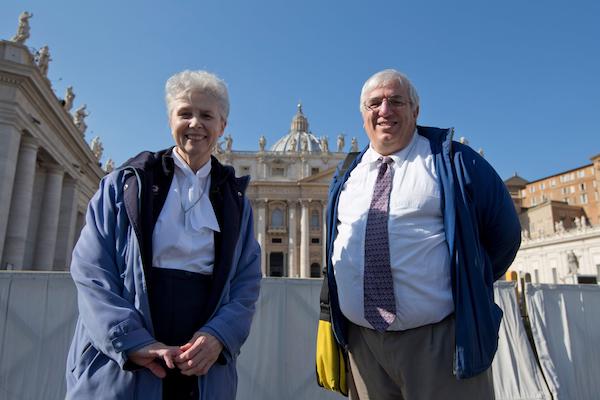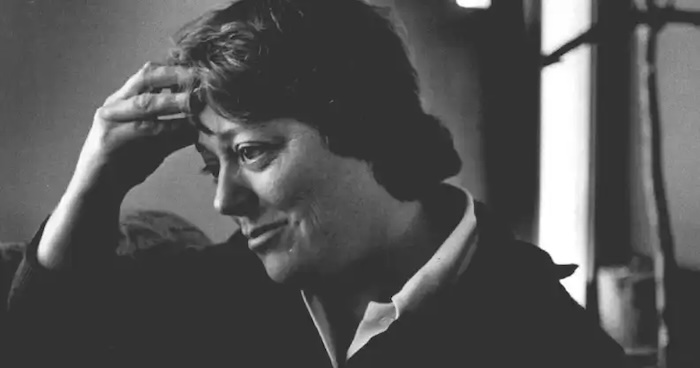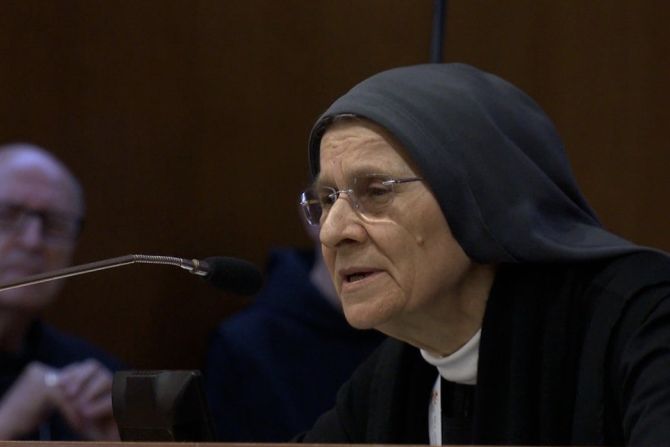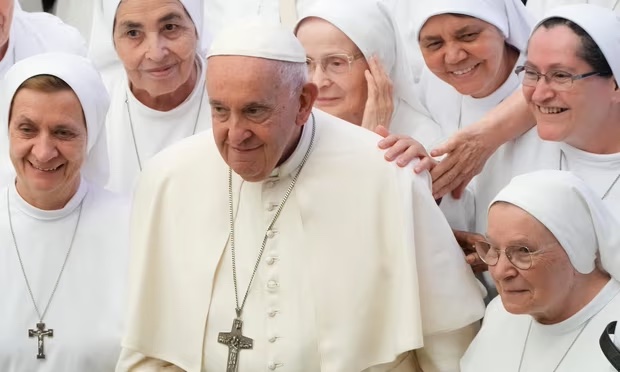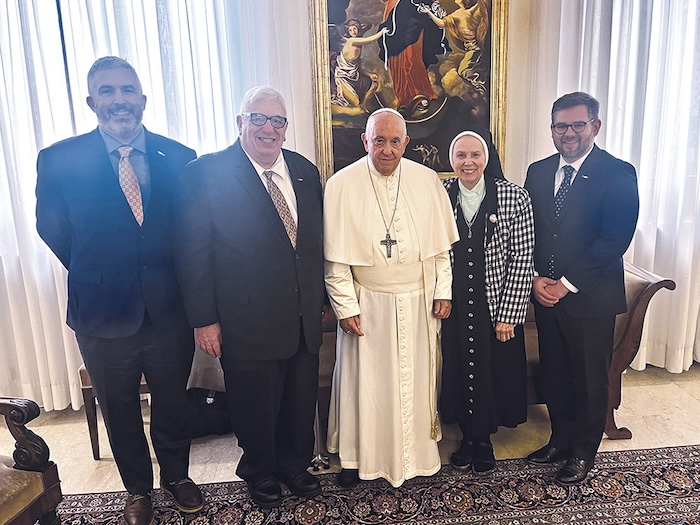
By Michele Morek
Some of the nicest surprises of my “life in retirement” are chance encounters with sisters I met through Global Sisters Report. It happened again the night of Nov. 7 in Kansas City, when Loretto Sr. Jeannine Gramick of New Ways Ministry spoke on a panel with Jesuit Fr. James Martin of the Jesuit ministry Outreach, and a gay Catholic theologian, Jason Steidl Jack, author of LGBTQ Catholic Ministries: Past and Present. The event was part of the Thomas More Center for Catholic Thought and Culture Conversations series at Rockhurst University.
Martin introduced the group and updated us on how the synod on synodality spoke about the LGBTQ topic. He noted that the working document referred to LGBTQ twice, and there were a significant number of conversations on it. Since the church is universal, a variety of opinions were expressed, with some bishops claiming that LGBTQ is an ideology, or that it is a form of colonialism foisted on African countries by the west. In the end, the term LGBTQ was removed from the document and the discussion was not reflected in it. But he thinks the voices were heard.
Gramick has been working in education and advocacy to build bridges between the LGBTQ community and the church since 1971. Her journey began in graduate school when she met a gay man who asked her what the church was doing for the gay community. At that time, LGBTQ people were being thrown out of their families and even the confessional, and not even mentioned in Catholic circles. She noted that LGBTQ people are still being put to death in some African countries.
In describing her ministry, she said four people gave her hope:
- Blessed Mary Theresa Gerhardinger of Jesus, one of the founders of the School Sisters of Notre Dame (Gramick’s former community of 40 years), who said: “All the works of God proceed slowly and in pain. But then, their roots are the sturdier and their flowering the lovelier.”
- Sr. Mary Luke Tobin, a former president of the Sisters of Loretto (Gramick’s present community) who urged her sisters to not be afraid, but to “Go out on a limb. That’s where the fruit is.”
- Pope Francis, with whom she recently met in Rome, invited her at his residence and they chatted for an hour. She said they had become “pen pals” for two years, after he wrote to congratulate her on her 50 years of ministry to the LGBTQ community. He told her, “Hope — we must always have hope,” and she got to tell him that he is the face of God to her. To that he replied, “God’s face isn’t that ugly, is it?” So, from Pope Francis she got a lesson of two words: hope and humor!
- Her father, who first urged her to “let the other nuns” work with the LGBTQ community. He asked her if she were going to burn any draft records (like some war protestors were doing then). When she replied, “Probably not, but suppose I did?” he said something like, “Well, that’s against our country, but if you do it that’s OK — you’re my daughter!” From him she felt God’s unconditional love.
Steidl Jack spoke from his own experience as a gay Catholic when he described his answers to people, on both the left and the right, who ask him how he can stay in a church that persecutes him. He said that he is in an unusually privileged position, as he has the support of family, friends, coworkers, and his Catholic parish in Manhattan, New York. He has hope because the Catholic grassroots are far ahead of the hierarchy, with 69% of US Catholics supporting gay marriage since 2016. It is the lay people who are pressing ahead for more acceptance.
He regretted the fact that there seems to be a new scapegoat, the transgender community. Here he mentioned another Global Sisters Report writer, Sr. Luisa Derouen and her work with the trans community. Of course, I felt very proud of her and elbowed Sister Angela sitting next to me, to be sure she got that!
Steidl Jack said that LGBTQ Catholics have been out in public for decades, and are openly transforming the church. He is excited by the pope’s compassionate relationship with the LGBTQ community, and his preaching about acceptance. He said, “God is not done with the Catholic Church!”
At the end, there was a lively question and answer period; since the event involved a university community there were many students and members of the Catholic and LGBTQ communities. The panelists seemed to enjoy the back-and-forth, and the process was punctuated by rounds of applause.
In one of her answers, Gramick said that she thought sexual theology needs to change for everyone, not just the LGBTQ community. She gave the example of how it has already changed, citing the Augustinian notion that if a married couple has sex that does not result in a child, they have sinned. However, Augustine acknowledged, it would be only a venial sin since they are married!
In response to another question, she urged people to follow their consciences. She thinks the pope is trying to avoid telling people what to do but is encouraging them to discern. She counseled LGBTQ people to listen to those who criticize them, tell their own story, and try to find areas of agreement. She said they need to become political — to visit Catholic legislators and hold them to Catholic values.
Steidl Jack strongly urged anyone experiencing persecution to immediately get to a community that affirms and loves them. They should not stay where they are being abused. The Catholic tradition is wide, and they will be able to find a parish home.
Martin commented that more young people were “coming out” in the synod; one African man told him that 30% of his youth group identified as LGBTQ. As more young people come out, more parents will get involved, and the movement will become stronger. Finally, he said that our work for this year between synods is to reflect on the synthesis document, listen to one another, and give input to pastors and members of the synod.
It was a good experience. I marveled at the courage shown by the panelists over the course of so many years. Sister Jeannine and I managed a quick greeting and hug before the reception, and I can assure her many readers that she is as gentle and humble as ever. Just one more global sister making a difference in the world, and thriving out there “at the end of that limb!”
Complete Article ↪HERE↩!

